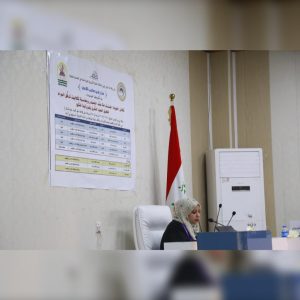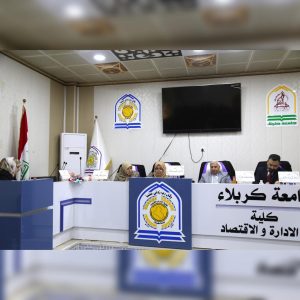Reforming the customs tax system in Iraq and its role in achieving financial sustainability for the period (2004-2019)
A Thesis submitted by the student
Yassin Nadeb Ali Khalil Al-Sultany
To The Council of Administration and Economic College University of Karbala
As Partial Fulfillment of the Requirements For The Degree of Master of Science in Economics
Supervision
Assistant Professor Dr. Kadhim Saad Abdul Redha Al-Araji
Abstract
Customs taxes are superior in characteristics to similar indirect taxes that qualify them to play roles that no other tax could play, and their financing role is one of the most prominent of these roles as well as other roles such as providing protection for local industries from foreign competition and providing protection for society. It is harmful to health. The research presents the importance of customs taxes in the Iraqi economy, its role in financing the general budget, protecting the national market from dumping and providing protection for national industries, and its role in achieving financial sustainability, in order to diversify the sources of revenue that finance the state’s general budget from non-oil revenues, since oil prices are exposed. With a continuous high volatility and external shocks, according to the developments that take place globally.
The research also presents the reality of customs taxes in Iraq, to determine the role and effectiveness of these taxes through indicators (the customs tax burden, the marginal tendency of customs taxes and the income flexibility of customs taxes) that have proven the ineffectiveness of the customs tax system currently in Iraq, which calls for the need To comprehensively reform the customs tax system. The research also presents the reality of financial sustainability in Iraq through indicators (internal public debt to GDP, external public debt to GDP, public debt to GDP), which proved the high public indebtedness ratio for Iraq especially from the year 2014-2014 (which may Its public debt has reached the stage of danger, which indicates the lack of financial sustainability in Iraq, and the inability of the state to service its public debt.
The research deals with the justifications that call for reforms to the customs tax system, and the obstacles that stand in front of its implementation. Simplified scenarios have been proposed to reform the customs tax system compatible with the economic developments in the world, which depend on the use of technology to develop the work of the customs system in the country. Among the most important conclusions were the ineffectiveness of the customs tax system in Iraq and its inability to play its financing and protection role in Iraq, which was reflected in the flooding of the local market with foreign goods and the decrease in customs tax revenues. The most important recommendations were to activate customs taxes by automating the customs system, and applying the tax Environmental customs, and reducing customs tax categories, to diversify the revenue structure, and avoid the risk of relying on borrowing and oil revenues only to finance the general budget deficit.































































